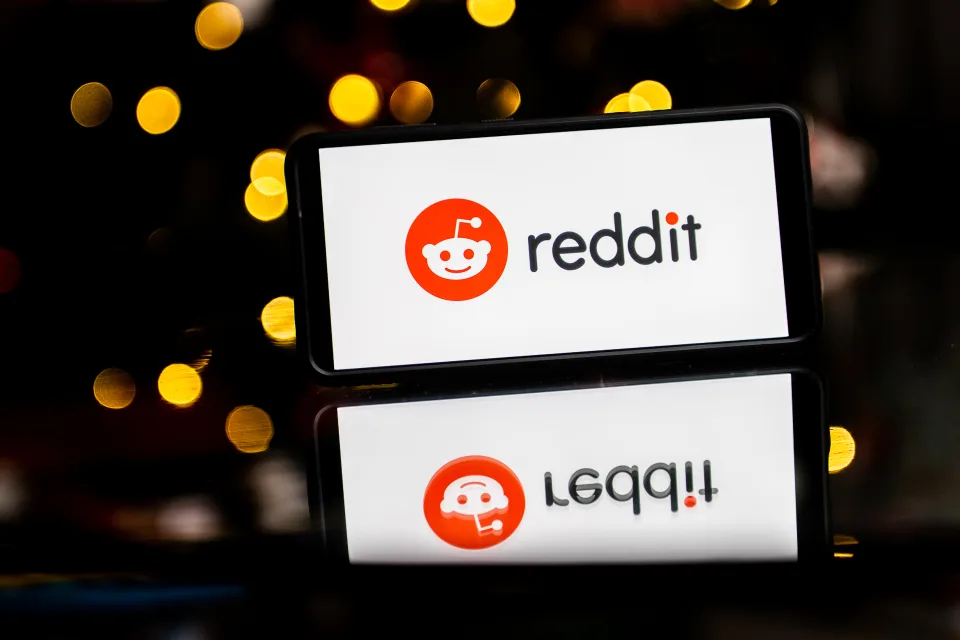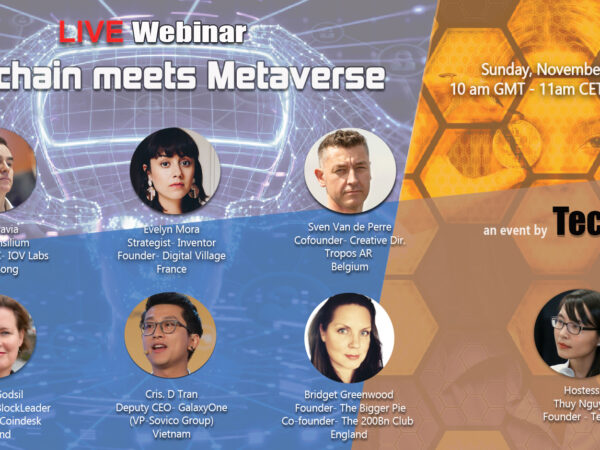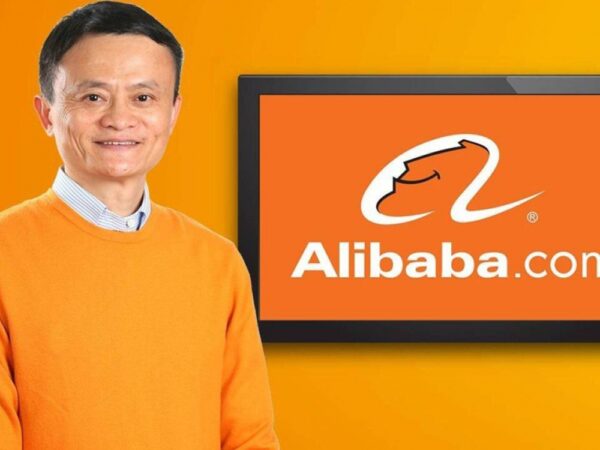What is NFT?
Non-fungible tokens (NFTs) are cryptographic assets on a blockchain with unique identification codes and metadata that distinguish them from each other.
Unlike cryptocurrencies, they cannot be traded or exchanged at equivalency. This differs from fungible tokens like cryptocurrencies, which are identical to each other and, therefore, can serve as a medium for commercial transactions.
Simply put, an NFT is a digital asset that can come in the form of art, music, in-game items, videos, and more. They are bought and sold online, frequently with cryptocurrencies, and they are generally encoded with the same underlying software as many cryptos.
When was the first NFT created?
On May 3, 2014, digital artist Kevin McCoy made ‘Quantum’ on the Namecoin blockchain. It is represented by a digital image of a pixelated octagon that changes color and pulsates.
After a lot of experimentation on top of the Bitcoin blockchain, developers eventually conceded that Bitcoin isn’t ideal for supporting NFTs and moved on to create Ethereum—a new type of blockchain that set the stage for the NFT explosion that followed.
How do NFTs Work?
NFTs are created through a process called minting in which the information of the NFT is published on a blockchain. At a high-level, the minting process entails a new block being created, the information of the NFT being validated by a validator, and the information being recorded. This minting process often entails incorporating smart contracts that assign ownership and manage the transferability of the NFT.
As tokens are minted, they are assigned a unique identifier directly linked to one blockchain address. Each token has an owner, and the ownership information (i.e. the address in which the minted token resides) is publicly available. Even if 5,000 NFTs of the same exact item are minted (i.e. general admission tickets to a music festival), each of the tickets has a unique identifier and can be distinguished from one another.
Differences between crypto and NFT
Like physical money, cryptocurrencies are usually fungible from a financial perspective, meaning that they can be traded or exchanged, one for another. For example, one bitcoin is always equal in value to another bitcoin on a given exchange, just like how every dollar bill of U.S. currency has an implicit exchange value of $1. This fungibility characteristic makes cryptocurrencies suitable as a secure medium of transaction in the digital economy.
However, because of blockchain’s ability to store and publicly communicate transaction history, not every token or coin of a given cryptocurrency is the same. For example, people may pay a premium for owning a bitcoin that was previously owned by Elon Musk or a coin that had never been traded before. Similar to how a 1944 U.S. steel wheat penny is only worth $0.01, collectors are willing to pay much more for something unique.
For this reasons, NFTs shift the crypto paradigm by making each token unique and irreplaceable, thereby making it impossible for one non-fungible token to be equal to another. They are digital representations of assets and have been likened to digital passports because each token contains a unique, non-transferable identity to distinguish it from other tokens. They are also extensible, meaning you can combine one NFT with another to “breed” a third, unique NFT.
Why are NFTs Important?
Non-fungible tokens are an evolution of the relatively simple concept of cryptocurrencies. Modern finance systems consist of sophisticated trading and loan systems for different asset types, ranging from real estate to lending contracts to artwork. By enabling digital representations of physical assets, NFTs are a step forward in the reinvention of this infrastructure.
To be sure, the idea of digital representations of physical assets is not novel nor is the use of unique identification. However, when these concepts are combined with the benefits of a tamper-resistant blockchain of smart contracts, they become a potent force for change.
Perhaps, the most obvious benefit of NFTs is market efficiency. The conversion of a physical asset into a digital one streamlines processes and removes intermediaries. NFTs representing digital or physical artwork on a blockchain remove the need for agents and allow artists to connect directly with their audiences. They can also improve business processes. For example, an NFT for a wine bottle will make it easier for different actors in a supply chain to interact with it and help track its provenance, production, and sale through the entire process. Consulting firm Ernst & Young has already developed such a solution for one of its clients.
Non-fungible tokens are also excellent for identity management. Consider the case of physical passports that need to be produced at every entry and exit point. By converting individual passports into NFTs, each with its own unique identifying characteristics, it is possible to streamline the entry and exit processes for jurisdictions. Expanding this use case, NFTs can serve an identity management purpose within the digital realm as well.
How to Buy NFTs
If you’re keen to start your own NFT collection, you’ll need to acquire some key items:
First, you’ll need to get a digital wallet that allows you to store NFTs and cryptocurrencies. You’ll likely need to purchase some cryptocurrency, like Ether, depending on what currencies your NFT provider accepts. You can buy crypto using a credit card on platforms like Coinbase, Kraken, eToro and even PayPal and Robinhood now. You’ll then be able to move it from the exchange to your wallet of choice.
You’ll want to keep fees in mind as you research options. Most exchanges charge at least a percentage of your transaction when you buy crypto.
—
References: Investopedia, meetdapper and Forbes
The European Union (EU) is launching investigations into tech giants Apple, Google, and Meta (Facebook’s parent company) over concerns they might not be following a new law designed to promote fair competition in the digital market.
Google Chrome is on the brink of initiating a seismic shift that threatens to reshape the very foundation of the modern internet. The imminent demise…
In a highly anticipated market debut, Reddit stock took off, closing its first day of trading with a staggering 48% surge from its initial public offering (IPO) price of $34 per share. The social media giant’s stock concluded the day at $50.44, propelling its market capitalization to over $8 billion.
In a significant move in Vietnam’s corporate landscape, Vingroup, the country’s largest conglomerate, has completed the sale of a 41.5% stake and other assets in its retail arm, Vincom Retail, for a staggering $1.6 billion. This transaction ranks among the largest mergers and acquisitions (M&A) deals in Vietnam in recent years, underscoring the dynamism of the country’s economy and corporate sector.
The integration of artificial intelligence (AI) into various facets of healthcare has revolutionized patient care, and its impact on surgery is poised to be profound. Leveraging AI’s capabilities to connect, analyze, and predict based on operating room data holds the promise of enhancing surgical efficiency and clinical decision-making. Recognizing this potential, NVIDIA has partnered with Johnson & Johnson MedTech to explore new AI capabilities within the realm of surgery, with the goal of advancing the company’s connected digital ecosystem for surgical procedures.
Apple is reportedly in discussions with Alphabet, Google’s parent company, regarding the licensing of Google’s “Gemini” artificial intelligence (AI) training model for integration into iPhones.
An Illinois jury has delivered a significant verdict in a case involving Mead Johnson’s Enfamil baby formula, ordering the company to pay $60 million to the mother of a premature baby who died from an intestinal disease after consuming the formula.
In the fast-paced world of software development, innovation is the name of the game. Cognition, a leading tech company, has introduced a groundbreaking solution that promises to transform the industry as we know it: Devin AI, the world’s first AI software engineer. Devin AI is not just another tool in the developer’s toolbox; it’s a game-changer that leverages the power of artificial intelligence and machine learning to automate coding tasks and streamline the development process.
When it comes to acing a job interview, there are certain tactics that can help you stand out and impress prospective employers. From showcasing your passion for the role to demonstrating problem-solving skills, there are plenty of strategies to employ. However, it’s equally important to be mindful of phrases that could raise red flags during the interview process.
The ongoing saga between the United States and ByteDance, the Chinese tech giant behind the popular social media platform TikTok, has taken another turn. With the House approving a bill requiring ByteDance to divest TikTok within roughly six months, the possibility of a forced sale or effective ban looms large.
-
 Cultural differences between the East and the West
Cultural differences between the East and the West -
 Vietnam received recognition in the 29th World Travel Awards in numerous categories
Vietnam received recognition in the 29th World Travel Awards in numerous categories -
 Vietnamese dishes that fascinate foreigners
Vietnamese dishes that fascinate foreigners -
 First NFT vending machine in the world is now operational in New York
First NFT vending machine in the world is now operational in New York -
 The LEGO Group today began construction on a new $1 billion factory in Binh Duong, Vietnam
The LEGO Group today began construction on a new $1 billion factory in Binh Duong, Vietnam -
 19 DeFi Startups To Watch
19 DeFi Startups To Watch

Google Maps to revolutionize navigation with Satellite features, eliminating dead zones

East Asia’s Growth Outpaces Global Average Amidst China’s Economic Challenges, Says World Bank

Google Maps to revolutionize navigation with Satellite features, eliminating dead zones

EU Probes Apple, Google and Meta for Potential Violations of New Digital Law

Exploring the Enchanting Wonders of Hawaii- A Journey to Remember

Vibrant Activities in Ha Nam Cultural and Tourism Week 2023

Exploring the Enchanting Wonders of Hawaii- A Journey to Remember

Unveiling the Heritage Guide: Vietnam Airlines’ Exquisite Travel Companion for Exploring Vietnam

Thomson Medical Group Expands Southeast Asian Presence with Acquisition of FV Hospital in Vietnam

By Rotation: The Startup Revolutionizing Fashion with Peer-to-Peer Clothing Rental

Talks with Leaders, Ep8: 1st AI Doctor Assistant in Vietnam provides 90+% correct diagnosis within 5s

Talks with Leaders, Special episode: Blockchain meets Metaverse, featuring business leaders, investors, tech experts and global influencers

NVIDIA and Johnson & Johnson MedTech’s AI Collaboration Revolutionizing Surgery

Google Maps to revolutionize navigation with Satellite features, eliminating dead zones

Valentino Joins the Metaverse: An Exciting Partnership with UNXD

Coinbase Faces Technical Woes Amidst Bitcoin Surge to $64,000

Coinbase Faces Technical Woes Amidst Bitcoin Surge to $64,000

Exploring the Enchanting Wonders of Hawaii- A Journey to Remember

Abode: Artist Challenges Adobe’s Dominance with Lifetime Creative Software Suite

By Rotation: The Startup Revolutionizing Fashion with Peer-to-Peer Clothing Rental

Threads App’s Rollercoaster Ride: Plummeting 82% of Users Raise Concerns for Meta’s Social Experiment

Job Interview Red Flags: Phrases to avoid according to a former Google recruiter

Exploring the Enchanting Wonders of Hawaii- A Journey to Remember

Vibrant Activities in Ha Nam Cultural and Tourism Week 2023

Thomson Medical Group Expands Southeast Asian Presence with Acquisition of FV Hospital in Vietnam

By Rotation: The Startup Revolutionizing Fashion with Peer-to-Peer Clothing Rental
- Google Maps to revolutionize navigation with Satellite features, eliminating dead zones - April 22, 2024
- East Asia’s Growth Outpaces Global Average Amidst China’s Economic Challenges, Says World Bank - April 4, 2024
- EU Probes Apple, Google and Meta for Potential Violations of New Digital Law - March 27, 2024


















